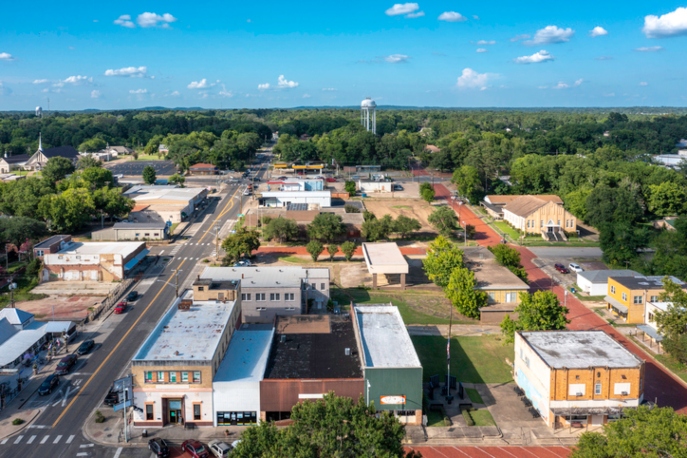Photo Credit: Michael Warren
Sexual violence is a complex issue. This type of violence not only comes in many forms, but there are a variety of underlying factors that can make people more vulnerable to experiencing it and less likely to receive appropriate victim support services. Geography is an often-overlooked factor that can influence sexual harm and access to vital services. Rural businesses and individuals living in rural areas are often at a disadvantage when it comes to finding resources for survivors, and survivors without those resources may be at risk for revictimization. In this week’s blog, we offer some tips on where local businesses can help survivors in rural areas.
Living in a rural area presents its own unique challenges for survivors and advocates alike. These challenges may be felt on a variety of levels.
–Interpersonal Level: People in small towns are more likely to know each other, which can erase the sense of anonymity and confidentiality a survivor needs to feel before they come forward to anyone in their lives about a sexual assault (which includes health care providers, law enforcement, legal representation, loved ones, etc.).
–Logistical Level: Lack of public transportation and distance between locations creates added obstacles for survivors who want to seek help.
–Economic Level: Service providers have severely diminished budgets compared to their urban counterparts which disrupt their ability to meet the needs of survivors. Survivors in rural areas are also more likely to be low-income, which can cause other problems like financial dependence on their abuser, inability to pay for sexual assault-related healthcare, and barriers to emergency relocation.
All of these are big problems to tackle, and we believe it takes people and entities from all levels of a community to disrupt the cycle of sexual violence and aid survivors in rural America. Businesses can be one part of the solution, which is why we’ve laid out some tips for how rural businesses can stand with the survivors in their area.
Learn About Challenges Faced by Rural Victim Services Through NSVRC Courses and Podcasts
The first step in solving any problem is learning about it. We encourage businesses to learn about sexual violence year-round, and one great place to start is through some online courses! The National Sexual Violence Resource Center offers a variety of free online courses and podcasts about sexual violence in rural communities. Reviewing these materials can help staff build a foundational understanding of the issues affecting their community and can help those employees anticipate what needs survivors in their lives may have.
Donate or Provide Grants to Local Resources
At RALIANCE, one of the most important parts of our work is our grant program. We are proud to have contributed nearly $4 million in grants over our 10-year tenure to programs engaged in survivor protection and sexual violence prevention. We encourage other businesses to invest in the existing services and programs in their communities to demonstrate their commitment to standing by the survivors in their area. RALIANCE would be happy to have any conversations with businesses who would like to learn more about our grant-giving process.
Increase Access to Telehealth
Access to healthcare is essential for all employees, but especially employees post-assault. For those who have difficulty accessing in-person healthcare due to lack of transportation, telehealth is vital. Survivors in rural areas may not have easy access to telehealth services, including mental health services, due to a variety of factors including limited access to high-speed internet and inadequate coverage by their employer or Medicaid. Rural employers may want to consider health insurance policies that provide expansive telehealth coverage. Additionally, they should consider offering a private room in-office to meet with their telehealth provider if they have insufficient internet at home.
Ensure that Survivors Have Full Transportation Access
One of the major barriers to care in a rural setting is a lack of transportation. Rural businesses might find it beneficial to a.) have emergency gas vouchers for those in need and b.) reach out to their local rape crisis center to see if there are any local rideshare programs or contacts a survivor can reach out to if they need transportation. Employees might also consider offering rides if they have the availability to do so, and employers in turn might consider offering flexible hours if that type of transportation is needed.
Advocate for Expanded Victim Services
Sexual assault support services and research has been underfunded for years, and this past year has seen an increase in federal budget cuts to these essential organizations and programs. Rural rape crisis centers, shelters, and hotlines have been disproportionately impacted by these cuts. This makes advocating for these services more important now than ever. We recommend employers to review our article, “The Business Case for Preventing Sexual Violence and Protecting Survivors” to learn more about what’s at stake. Then, we encourage businesses to speak publicly about restoring public funding for these services at the local, state, and national levels. It is our belief that protecting survivors is not partisan-it’s an essential act of improving public health.
Survivors in rural communities have unique factors that must be considered. When businesses meet their community to offer what they can, they can play an important role in making the survivors in their office and in their area that much safer.
RALIANCE is a trusted adviser for organizations committed to building cultures that are safe, equitable, and respectful. RALIANCE offers unparalleled expertise in serving survivors of sexual harassment, misconduct, and abuse which drives our mission to help organizations across sectors create inclusive environments for all. For more information, please visit www.RALIANCE.org.

